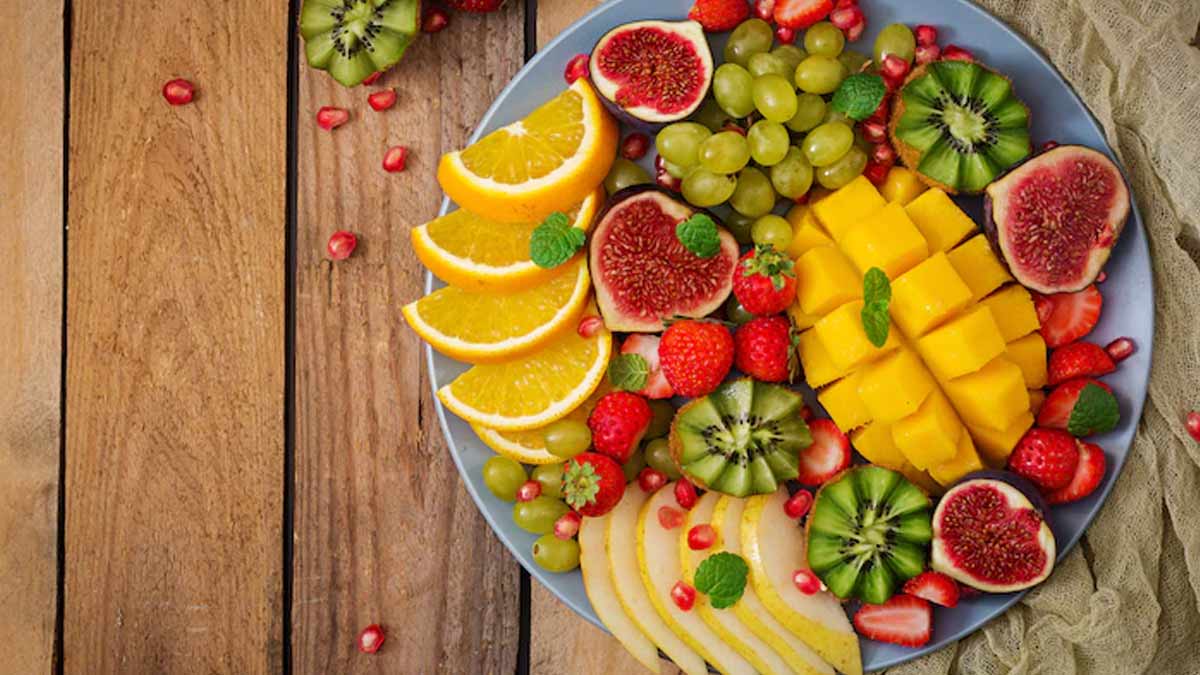
Fruits contain essential vitamins, antioxidants, water, and fibre. But they naturally contain sugars, mainly fructose, accompanied by glucose and sucrose. Although this sugar is natural and healthier than refined sugars, health professionals caution that consuming too much of the fruit, especially in certain presentation forms, could tip your blood sugar balance, especially if you have prediabetes, insulin resistance, or diabetes.
Table of Content:-
So, can consuming too much fruit really be detrimental to your blood sugar? Let's get to the bottom of it with expert advice.
What's in Fruit Sugar?
Unlike table sugar, the natural sugar in fruit comes in a package deal with fibre. It holds back digestion and the absorption of the sugar into the bloodstream. So, a banana or apple won't raise your blood sugar as fast as a cookie or soda. However, as always, there is a catch.
- A medium apple contains approximately 19 grams of sugar.
- A cup of grapes contains approximately 23 grams.
- A large mango can contain as much as 45 grams of sugar.
Consume several fruits daily in addition to other sources of carbohydrates, and you might begin to experience effects, particularly if you're not pairing them with protein, fiber, or healthy fats.
Also Read: World Embryologists Day 2025: Theme, History, Importance and Its Significance

Signs You Might Be Overdoing Fruit
- Regular energy crashes after meals
- Increased sweet cravings
- Mysterious weight gain
- Hunger pangs again shortly after consuming fruit
- Elevated fasting blood sugar (if checked)
What the Experts Say
Nutritionists tend to agree that most individuals don't consume enough fruit, but in a few instances, and in individuals with blood sugar conditions, too much fruit can result in a glucose imbalance. Here's an explanation from pur expert, Pooja Singh, Dietician at ShardaCare, Health City - Noida."If you're making smoothies with several fruits, snacking on dried fruits, and also drinking fruit juices, your fructose consumption can go through the roof. This can skip the fiber advantage and shoot your sugar levels higher," she explained.

Fruits to Watch Out For
Some fruits are more sugary than others. Here's a fast guide:
More in Sugar (Eat in moderation)
- Mangoes
- Grapes
- Bananas
- Cherries
- Dried fruits (raisins, dates)
- Fruit juices (even 100% pure juice)
Lower in Sugar (Better for glycemic balance)
Berries (blueberries, strawberries)
- Apples (with peel)
- Pears
- Kiwis
- Avocados
- Guava
Bottomline
Yes, it is possible to overdo it on the fruit, particularly in fiber-less forms such as juices or dried fruit. But for most individuals, moderate consumption of fruit maintains health and helps level, rather than spike, blood sugar when consumed intelligently.
Remember that balance is the key. Eat fruit as part of an unprocessed, varied diet, and if you do have concerns about blood sugar, consult with a healthcare practitioner to figure out what works best for your body.
Also watch this video
How we keep this article up to date:
We work with experts and keep a close eye on the latest in health and wellness. Whenever there is a new research or helpful information, we update our articles with accurate and useful advice.
Current Version